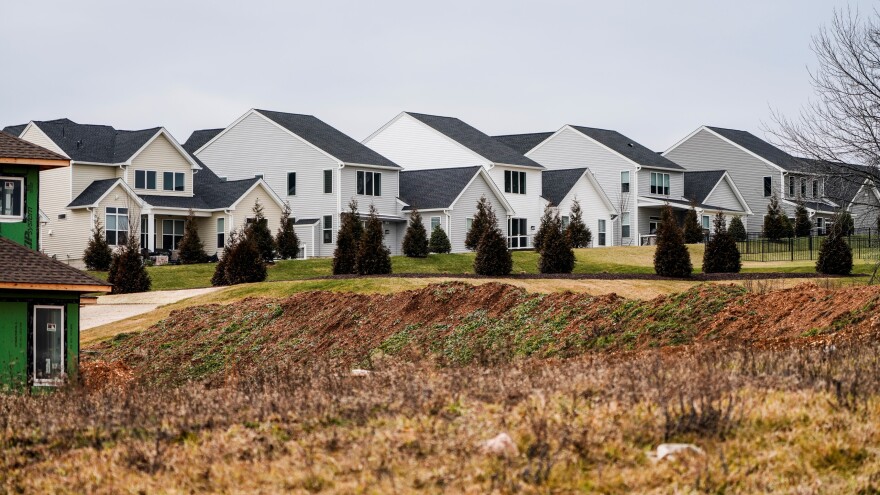ALLENTOWN, Pa. — With high prices and a shortage of homes fueling a housing crisis in the Lehigh Valley, officials from across the area are embarking on an ambitious mission to quickly develop a regional housing plan.
A team of Lehigh County’s top officials launched the Housing and Attainability Strategy on Friday with a news conference at 615 Waterfront.
The initiative is meant to bring together representatives from local governments and school districts, developers, bankers, realtors, business owners and nonprofit leaders — along with residents.
They will share their expertise and develop a way out of “years and years and years” of housing shortages, according to Lehigh County General Services Director Rick Molchany.
The Lehigh Valley is “a popular destination” and the fastest-growing region in Pennsylvania, Molchany said.
“Being at the table means you're not on the menu.”Lehigh County Executive Phil Armstrong
About 700,000 people live in Lehigh and Northampton counties, and that number could grow by 100,000 over the next quarter-century, Molchany said.
“That’s like another city almost the size of Allentown,” Molchany said, underscoring the need for a long-term housing strategy.
Lehigh County Executive Phil Armstrong called the strategy “a super collaborative effort to make sure we know exactly where the housing needs to be [and] what kind of housing needs to be there.”
“We need to bring everybody together … We've all got to come to the table,” Armstrong said.
He paid tribute to regional leaders who have helped push the Lehigh Valley to greater prominence through their work on various boards and commissions.
“We have people that are now making sure Lehigh Valley is at the table,” he said. “Being at the table means you're not on the menu.”
Crisis demands ‘urgency’
Lehigh County officials laid a lot of the foundation for the new housing strategy during the coronavirus pandemic when they looked at jobs and housing vulnerability, according to Lehigh Valley Planning Commission Executive Director Becky Bradley.
County employees are working to update that data, which will be used to create an interactive online map, Bradley said.
“We’re going to build the website to end all websites,” she said.
“We can't accept a situation where people have grown up in a community and they can't afford to stay in that community."Becky Bradley, LVPC executive director
That website will serve as a trove of information — including living costs, home sales, demographics and much more — essential for planning a long-term housing strategy.
The regional strategy will set “some basic goals” and develop “an economic strategy to increase housing production where we need it and at what price points we need it,” Bradley said.
In-depth zoning analyses also will be a major component of the strategy.
“We want to be able to have a better picture of how everything fits together,” Bradley said. “We don’t want to just have a surface-level look at this.”
Though officials developing the regional housing strategy plan to engage a vast network of stakeholders and explore countless factors that affect the market, Bradley said she’s confident it can be ready in about a year.
Officials must “honor and respect” that many current Lehigh Valley residents desperately need help and move with “urgency” to find solutions.
“We can't accept a situation where people have grown up in a community and they can't afford to stay in that community,” she said.
Bradley and other officials warned Friday that solving the housing crisis is not as simple as just building more housing.
“We really do need to work with people on building consensus around housing solutions because we know we need to increase housing," she said.
"But maybe you don’t want to increase it in certain places” because of farmland preservation, environmental management or many other factors, she said.


